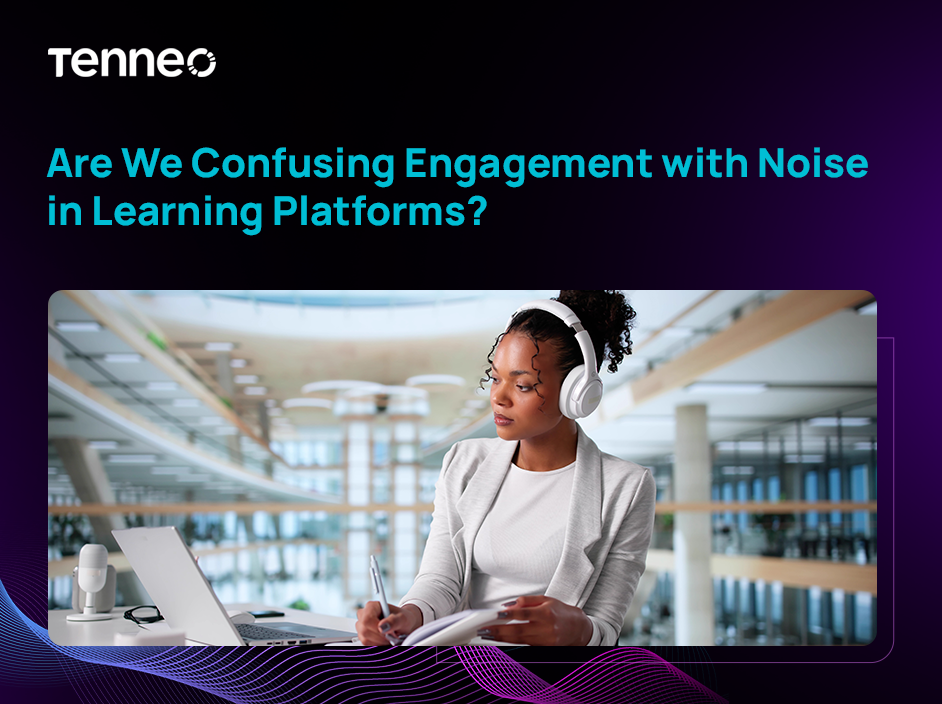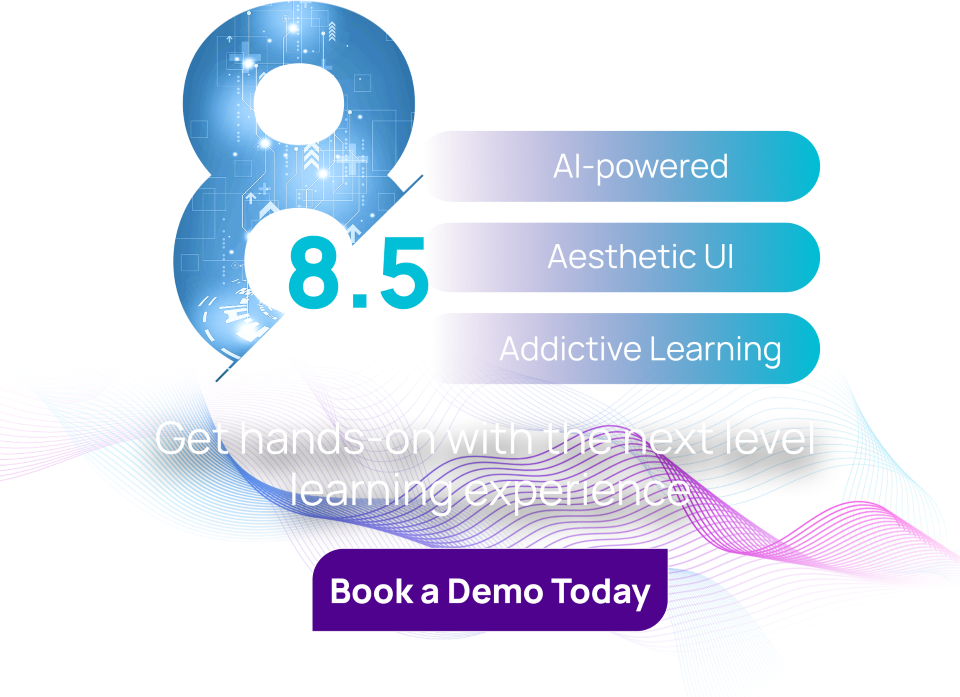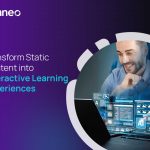
Why Does Your LMS Need Smart Content Capabilities?
November 19, 2024
AI in L&D: Unlocking Advanced Use Cases for Smarter Learning
March 13, 2025
Why Does Your LMS Need Smart Content Capabilities?
November 19, 2024
AI in L&D: Unlocking Advanced Use Cases for Smarter Learning
March 13, 2025The AI-powered LMS Checklist for 2025: Top four things to consider when choosing an LMS
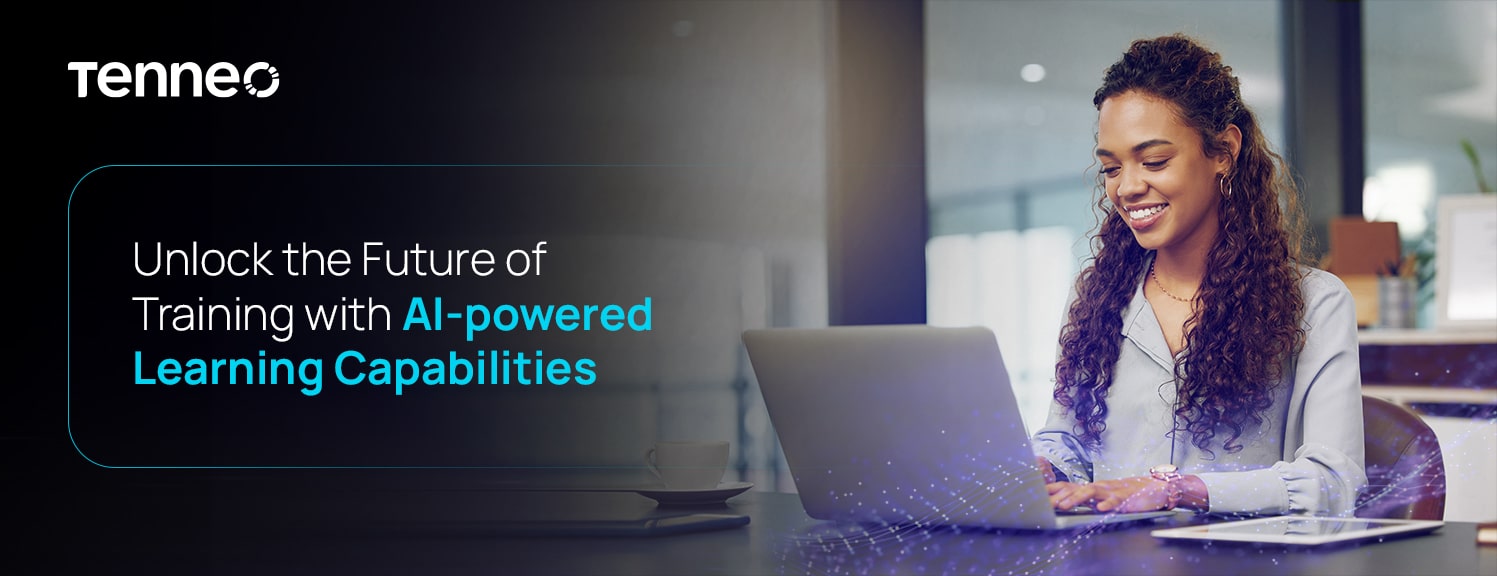
As we move into 2025, employee L&D is evolving at an extraordinary pace, fuelled by the capabilities of AI in learning. The traditional approach to training - static content, one-size-fits-all learning paths, and delayed feedback - simply does not suffice anymore. L&D leaders are seeking smarter, more adaptive solutions to equip their workforce with the right skills, at the right time, in the most effective ways.
Today, the AI-powered LMS is no longer a luxury; it’s a necessity. AI-powered learning is reshaping how we approach training by providing personalised, real-time support and delivering learning insights that help organisations drive performance.
But with so many options available, how can you identify the right Enterprise LMS for your business? Let's find out!
The LMS Checklist: Top Four Must-Have AI Capabilities in an LMS
Choosing the right AI-powered LMS is one of the most important decisions for any L&D leader and selecting one with the right AI capabilities can make all the difference.
Let’s look at the top four features you should prioritise when evaluating an AI-powered LMS for 2025.
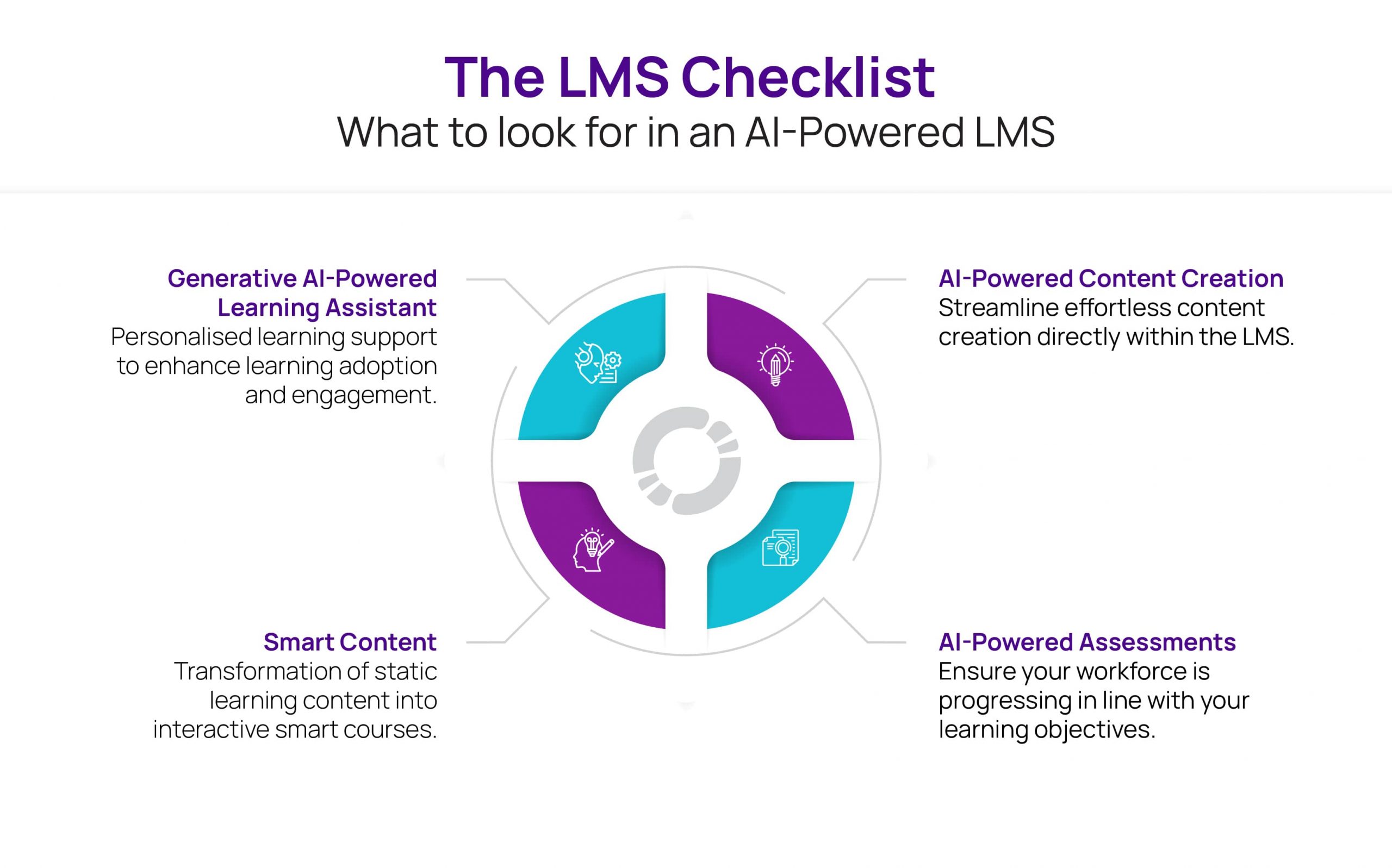
1. Generative AI-Powered Learning Assistant
Employees need instant, on-demand learning support to stay on track. A Gen AI-powered learning assistant serves this need by providing real-time, contextual assistance. Whether learners have difficulty finding material or determining their next steps, this feature ensures they have immediate access to the right resources, boosting confidence and accelerating progress.
For businesses, the benefits are equally compelling. Employees spend less time searching for content and more time engaged in learning. This improves knowledge retention, reduces dropout rates, and ensures a more productive workforce equipped with the skills they need to excel.
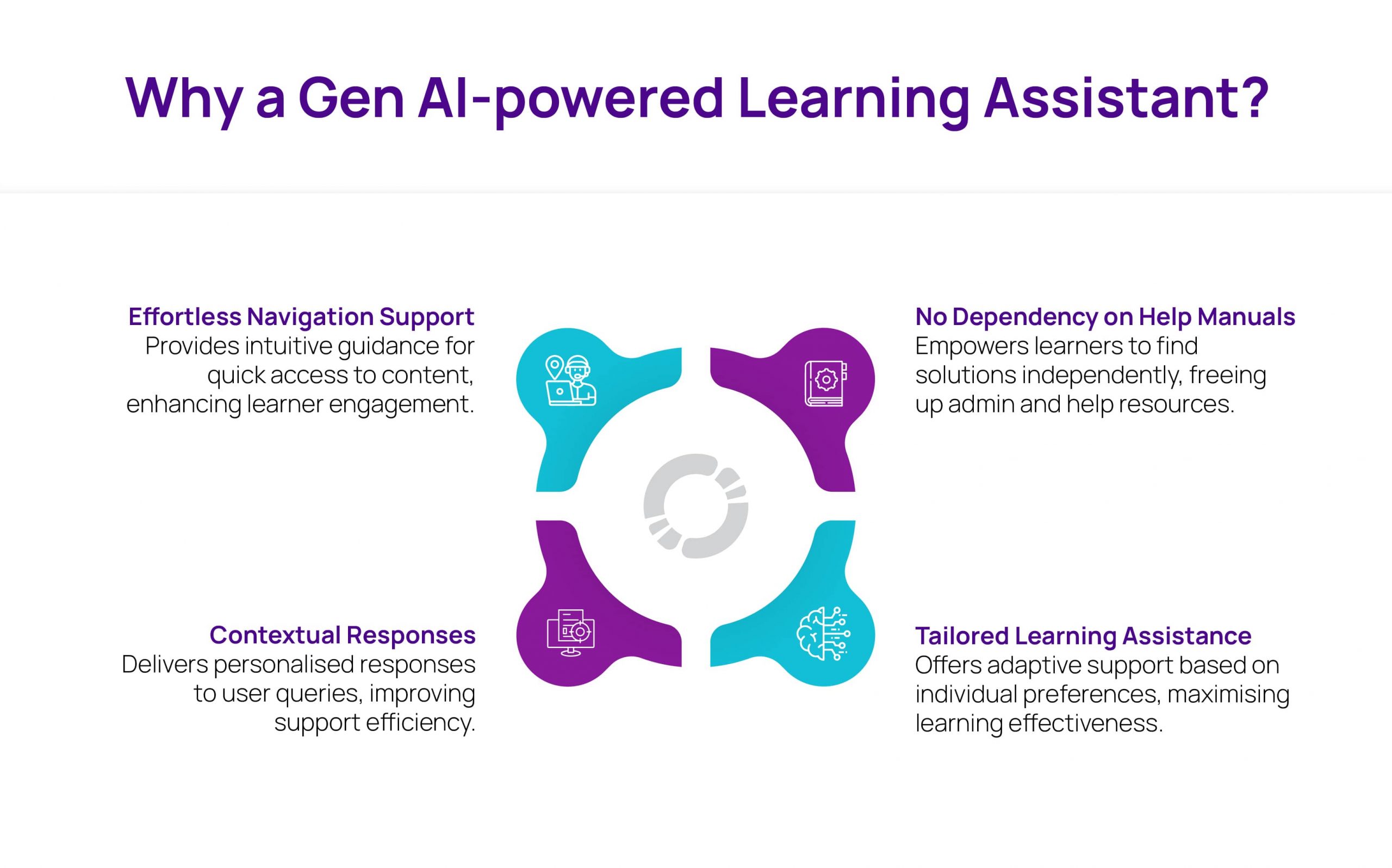
2. Smart Content Capabilities
Smart Content capabilities refer to transforming static learning materials into dynamic, interactive experiences that enhance both engagement and effectiveness. With features like personalised quizzes, real-time assessments, and learning recommendations, Smart Content makes learning interactive. It ensures that content adapts to your needs, filling knowledge gaps and maintaining interactivity throughout the learning journey.
Smart Content supports inclusivity by enabling multi-language translations and provides need-based recommendations to drive efficiency. This makes training accessible, impactful, and aligned with business goals, ensuring a more skilled and prepared workforce.
3. AI-Powered Content Creation
Creating high-quality training materials can often be time-consuming and resource-intensive. AI-powered content creation simplifies this process by enabling organisations to rapidly develop tailored, visually engaging content within the LMS itself.
For L&D leaders, this means faster deployment of training materials and the ability to adapt them in real-time. AI-powered content creation eliminates bottlenecks, allowing organisations to scale their training efforts while maintaining consistency and relevance. The result? A more agile approach to L&D that aligns with evolving business needs.
4. AI-Powered Assessments
Assessments are critical for measuring progress and identifying skills gaps, but traditional methods often fall short. AI-powered assessments revolutionise this by dynamically adjusting the difficulty based on individual performance. This ensures learners are both challenged and supported, fostering growth at their own pace.
For organisations, the benefits are significant. These adaptive assessments provide actionable insights into learner performance, highlighting areas for improvement and ensuring true skill mastery. Real-time feedback further accelerates development, allowing employees to quickly address weaknesses and move forward confidently.
Conclusion
As the learning landscape evolves, the role of an LMS goes beyond just delivering training, it becomes a strategic enabler for workforce development and business growth. An AI-powered LMS equipped with capabilities like generative AI assistants, smart content, seamless content creation, and adaptive assessments can transform the way organisations approach employee learning and development.
When selecting an LMS for 2025, prioritise these AI-driven features to empower your workforce with personalised learning experiences, actionable insights, and adaptive support. By making the right choice, you'll not only future-proof your L&D strategy but also foster a culture of continuous learning, innovation, and performance excellence.
If you are looking for one comprehensive learning solution that brings all these innovations together, your search ends with Tenneo LMS. Designed to meet the evolving needs of businesses, Tenneo’s AI-powered LMS empowers organisations to deliver impactful, personalised, and adaptive learning experiences.
Ready to transform your learning and development strategy? Talk to our LearnTech experts to explore how Tenneo can help you achieve your goals.



